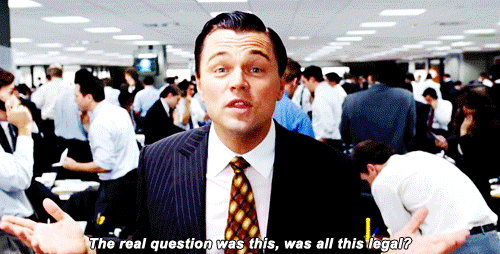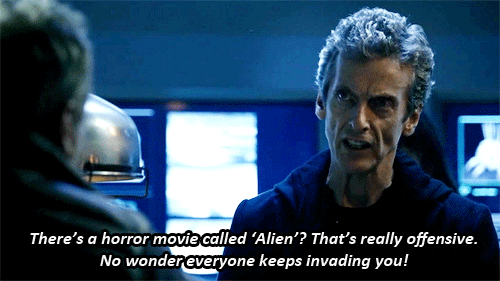This is part of the General Conference Odyssey.
This week covers the April 1971 Priesthood session. Let me give a brief rundown of some of the least interesting talks.
In the lead talk, President Joseph Fielding Smith describes what it is to be a priesthood holder:
We are ambassadors of the Lord Jesus Christ. Our commission is to represent him. We are directed to preach his gospel, to perform the ordinances of salvation, to bless mankind, to heal the sick and perhaps perform miracles, to do what he would do if he were personally present—and all this because we hold the holy priesthood. As the Lord’s agents we are bound by his law to do what he wants us to do regardless of personal feelings or worldly enticements. Of ourselves we have no message of salvation, no doctrine that must be accepted, no power to baptize or ordain or marry for eternity. All these things come from the Lord, and anything we do with reference to them is the result of delegated authority.[ref]He goes even further: “We must not be guilty of unrighteous and evil acts of abortion.”[/ref]

Future president Howard W. Hunter talks about the very mundane topic of the (then new) meetinghouse library program. Despite the subject’s fairly boring nature, as my stake’s Sunday School president, I was pleasantly surprised to see teaching addressed so strongly, if in a somewhat roundabout way. Hunter highlights D&C 42, explaining that the priesthood is to “teach the principles of my gospel, which are in the Bible and the Book of Mormon, in the which is the fulness of the gospel. And they shall observe the covenants and church articles to do them, and these shall be their teachings, as they shall be directed by the Spirit” (vs. 12-13). Hunter says we must “seek…diligently and teach one another words of wisdom; yea, seek ye out of the best books words of wisdom; seek learning, even by study and also by faith” (D&C 88:118). While some may find it (unjustifiably) tasteless, I thought his comparison of the packaging of the gospel message to marketing tactics made plenty of sense. Rhetoric and delivery are important. When combined with information or truth, it creates impact.
David B. Haight’s talk features similar thoughts through the discussion of the teacher development program. Drawing on the Savior’s admonishment to Peter in John to “feed my sheep” (John 21:15-17), Haight believes that not only must “[w]e must understand these instructions and our responsibility to “teach one another the doctrine of the kingdom” (D&C 88:77), but [also] to teach it effectively so that all of us, our children, our children’s children, and generations yet unborn will be able to perceive and comprehend the true meaning of life as proclaimed by the Master, and then have a desire to live it and eventually gain exaltation in the kingdom of our Heavenly Father…”
Sexual morality is addressed in several of the talks from the April session and Victor L. Brown provides a nice summary as to why such morality is important: “Sexual activity is to be indulged in only within the bonds of marriage. When this is the case, it is one of the most rewarding and satisfying experiences man can have. When this is not the case, the same experience becomes base and evil…Infidelity and promiscuous sex activity destroy the basic, vital institution of the family, which in turn destroys all that is good in life” (italics mine). While he does make some cringe-worthy comments about homosexuality,[ref]Brown says, “The Lord defined some very basic differences between men and women. He gave the male what we call masculine traits and the female feminine traits. He did not intend either of the sexes to adopt the other’s traits but, rather, that men should look and act like men and that women should look and act like women. When these differences are ignored, an unwholesome relationship develops, which, if not checked, can lead to the reprehensible, tragic sin of homosexuality. In other words, we have a responsibility as priesthood bearers to be examples of true manhood.” Ouch. And while there is nothing wrong with pointing out sex differences, we shouldn’t–as psychologist Steven Pinker notes–use “dubious sex differences to condemn the choices of women.”[/ref] Brown thankfully points out that morality encompasses far more than just sexuality and offers up honesty and integrity as vital to a moral life. Despite Brown’s anecdotes regarding the honest Mormon professional, it seems that modern Mormon businessmen could use Brown’s reminder. given that Utah is the state with the most affinity fraud per head.
The last three talks really shine. Wendell J. Ashton offers a touching address directed at his two sons. He stresses the “eternal principles” that “can help you lead in a world that cries out for real priesthood leadership.” And in one of the finest conclusions of a General Conference talk I have heard in some time, he declares lovingly,
Stand on your own feet. Stand tall. Hold your heads high as though you are truly sons of God, which you are. Walk among men as holders of powers beyond your own, which you have, through the priesthood. Move on the good earth as though you are partners of the Lord in helping to bring immortality and eternal life to mankind, which you are. Walk quietly, as in stocking feet; but walk fearlessly, in faith. Don’t let the ill winds sway you. Walk as leaders with the priesthood in the government of God. Walk with hands ready to help, with hearts full of love for your fellowmen. But walk with a toughness in righteousness.
N. Eldon Tanner’s talk, for me, is the highlight of the Priesthood session. In the midst of recent controversies and polarization among Latter-day Saints surrounding women and the priesthood, excommunications, and the policy regarding children of same-sex parents, the talk is a powerful reminder that we should not be rejoicing in the falling away of fellow members. “Good riddance” is the not the appropriate response:
Every bishop, every stake president, every leader of any organization knows someone who needs attention, and you and we have the responsibility of going to find that lost sheep…These young men [and women] and these older men [and women] who are inactive in the Church, who have strayed away from the Church because of inactivity or for any reason, need our help and need our attention just as much. They need our prayers and our consideration, and nothing will bring us greater joy and happiness than to see one come back into activity.
Tanner reminds the audience that not all inactivity is due to sin, but sometimes due to neglect. In his recalling of the parable of the lost sheep, I’m reminded of the accompanying parables of the lost coin and the prodigal son. Sheep and sons can wander away. Coins can’t. Owners lose those due to neglect and carelessness. We blame those who are offended rather than seeking to be less offensive.
We as a community have responsibilities toward our members:
Often some little thing, some slight, or a misunderstanding causes one to become inactive. There are those who are discouraged and inactive because they have felt neglected or have been offended; or they are guilty of some transgression of their own, and as a result feel that they are outcasts or that there is no place for them, that they are not worthy or wanted. They feel that they are lost and cannot be forgiven. We as leaders must let them know and make them know that we love them, and help them to understand that the Lord loves them, and that the Lord will forgive them if they will truly repent.
There are people “in every ward ranging in ages from twelve to seventy who, though they would deny it, are hungry for attention, for brotherhood, and for an active life in the Church.” We must say to them, as Tanner did to one inactive brother, “Listen, brother, you need activity in the Church, but we need you, we really need you.” This fellowship goes beyond the individual: “By saving one, we might save a family. We might even save a generation. By losing one, we may lose not only the individual but a family and his posterity.”
One of the final comments of Harold B. Lee rounds out Tanner’s excellent message. Is all that effort worth it? “I want you to know that it would be worth it if it were my grandson, or one of mine. It would be worth it if it were one of yours.”
Overall, a particularly moving Priesthood session.
—
Here are the other folks participating in this grand scheme who have also written blog posts responding to the Priesthood session of the April 1971 General Conference. (If any of the links don’t work, try back later. They are all coming online during the day.)
Bites from the April 1971 Priesthood Session (by G at Junior Ganymede)
Dear to the Heart of the Shepherd (by Daniel Ortner at Symphony of Dissent)
Deep Down Inside Us There is Good (by John Hancock at the Good Report)
Betty Friedan and Bishop Brown (by Ralph Hancock at The Soul and The City)
Why I support Friends of Scouting (by Michelle Linford at Mormon Women)
God’s Plan to Exalt His Children (by Miachael Worley at Michael’s Thoughts and Ideas)


Thanks so much for what you’ve written. It was a great reminder that while we all choose our response to the actions of others and should choose NOT to be offended this does not give license for boorish, rude, exclusive, judgmental behavior. We must work harder on not giving offense and work much harder on seeking out those whose hearts have been injured and offering the balm of friendship and genuine caring.